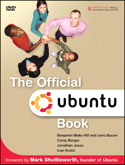I used to work for OLPC, whose mission is to distribute low cost laptops for education, without necessarily the connectivity with the outside world. Now at Praekelt we’re focusing on using connectivity as the power – harnessing the deployed base of mobile phones in Africa without requiring them to be smartphones or computing devices. As part of this Praekelt Foundation and Vodacom are hosting the Betavine Social Exchange Cape Town Developer Day 2010.
I’ve asked Steve Wolak to tell us more about Betavine and the event.
Who is Steve Wolak?
 Stephen Wolak, Founder and Head of Betavine, has worked in mobile technology and software since graduating from Imperial College, London. Stephen joined Vodafone Group R&D in 2000 and in 2006 put forward the idea of an open platform for engaging the wider technology community with R&D activities. The rest, as they say, is history.
Stephen Wolak, Founder and Head of Betavine, has worked in mobile technology and software since graduating from Imperial College, London. Stephen joined Vodafone Group R&D in 2000 and in 2006 put forward the idea of an open platform for engaging the wider technology community with R&D activities. The rest, as they say, is history.
MC: I first became aware of Betavine when looking for 3G drivers for Linux, but I’m sure there is more to it than that. What is Betavine and how did it start?
SW: Betavine was launched in January 2007 and has been evolving ever since, with new features being added in response to new requirements and feedback from the user base. One area of success has been the linux software for the Vodafone Mobile Connect (VMC) card which has been downloaded over 750,000 times and has created a lively community around it.
We have also run a number of successful competitions on the website and created a lively Widget Zone. The website continues to evolve and we try out new things.
MC: What is the Betavine Social Exchange?
SW: This is our latest idea.. creating “social and sustainable” mobile solutions. The Betavine Social Exchange seeks to bring together 3 communities; the mobile community, the social sector and the entrepreuners. Together these communities can create mobile solutions for the social sector. Community organisations create challenges on the website and mobile developers / social entrepreneurs create solutions. The website then supports the deployment of these solutions on the ground.
MC: The BSX’s success certainly depends on connecting the right people: those with needs – the NGOs and community organisations – and the developers. How do you publicise the BSX to reach them?
SW: We are running our pilot in South Africa and so we are working with Sangonet to help us get in touch with South African NGOs. We are running a developer day in Cape Town to help us engage with the local developer community.
MC: What do the resulting solutions include – are they apps for mobile phones, mobi websites, SMS solutions or all of the above?
SW: All of the above. It is important that the solution is appropriate for the challenge and the local community that will ultimately use the solution.
MC: What can developers expect from participating in the BSX?
SW: They can find real world challenges that people are seeking solutions to. They can meet other developers and find useful resources to help them create a business. The full resources section is coming soon.
MC: Which leads us on to the Developer Day being hosted in Cape Town next month. What’s going to be happening at the event, and how does it tie in with the BSX?
SW: We are keen to encourage mobile developers based in South Africa to engage with the real challenges that have been posted on the Betavine Social Exchange. The developer day will include presentations on mobile technology and some exciting mobile solutions plus a developer competition and lots of creative energy and networking.
MC: You’re going to be speaking at the event. Who would you like to see there?
SW: I would like to see mobile developers plus those with design skills and a passion for using mobile technology for social change.
MC: We’re having a developer competition on the day. Can you tell us anything about the prizes/incentives you’re planning to bring?
SW: Well, the developer day is free and includes lots of food and drink plus some beer at the end of the day … :-) We also intend to offer a few prizes for the competition winners .. But we have not decided exactly what yet. You will have to come along and see but tickets are going fast!
Developer Day details
Date: Wednesday, March 10, 2010 from 9:30 AM – 7:00 PM
Location: The Lightbox Daylight Studio, Green Point, Cape Town
More information and free tickets are available at eventbrite. Due to the demand, the event has been expanded to 70 people.


 Feed - the whole site
Feed - the whole site